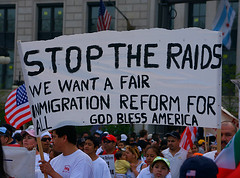Second step of our final project:
Choose the topic for your final project together with your American peer and your Italian peers.
It seemed to me a quite simple task but it turned out to be a very difficult decision to come to. The group are changed and now I’m with Alberto, Alice, Martina and Kelsey. You couldn’t imagine how difficult it was to choose a topic on which everybody agree. We started with Alberto’s proposal to develop the idea of ‘American dream’. Fantastic, exciting! Everybody agree…wow! No, not everybody. Our teacher was very doubtful about this topic because it has little to do with Italian culture. After half an hour of talk we had to start again our discussion in order to find a new topic, but this time things were more difficult. We discussed about immigration, music, health care but none of these topics was really appealing. In the end we chose to compare American college university life with Italian college life. I noticed that there is at least another group that will develop our topic but I think we will compare different aspects of American and Italian college life. We decided to focus on funny aspects like papiri, feste di laurea, goliardia etc.
This Skype session was really packed, but it worked as well. So, we decided to continue to talk in five each week. Probably next time we have to give Kelsey more chances to speak in Italian. I think she felt a bit overwhelmed by Italian people talking in English and she didn’t practice Italian to much this time. We decided to use del.icio.us to exchange useful websites and to use our blogs and our wiki page to communicate.
Choose the topic for your final project together with your American peer and your Italian peers.
It seemed to me a quite simple task but it turned out to be a very difficult decision to come to. The group are changed and now I’m with Alberto, Alice, Martina and Kelsey. You couldn’t imagine how difficult it was to choose a topic on which everybody agree. We started with Alberto’s proposal to develop the idea of ‘American dream’. Fantastic, exciting! Everybody agree…wow! No, not everybody. Our teacher was very doubtful about this topic because it has little to do with Italian culture. After half an hour of talk we had to start again our discussion in order to find a new topic, but this time things were more difficult. We discussed about immigration, music, health care but none of these topics was really appealing. In the end we chose to compare American college university life with Italian college life. I noticed that there is at least another group that will develop our topic but I think we will compare different aspects of American and Italian college life. We decided to focus on funny aspects like papiri, feste di laurea, goliardia etc.
This Skype session was really packed, but it worked as well. So, we decided to continue to talk in five each week. Probably next time we have to give Kelsey more chances to speak in Italian. I think she felt a bit overwhelmed by Italian people talking in English and she didn’t practice Italian to much this time. We decided to use del.icio.us to exchange useful websites and to use our blogs and our wiki page to communicate.









